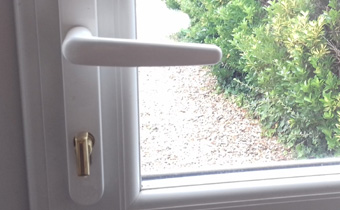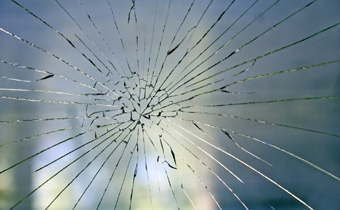Beds: 01462 290 188
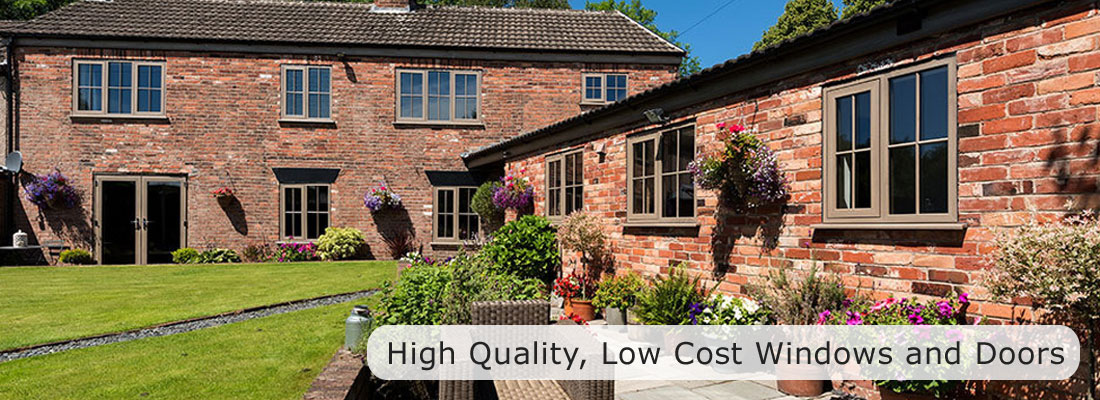
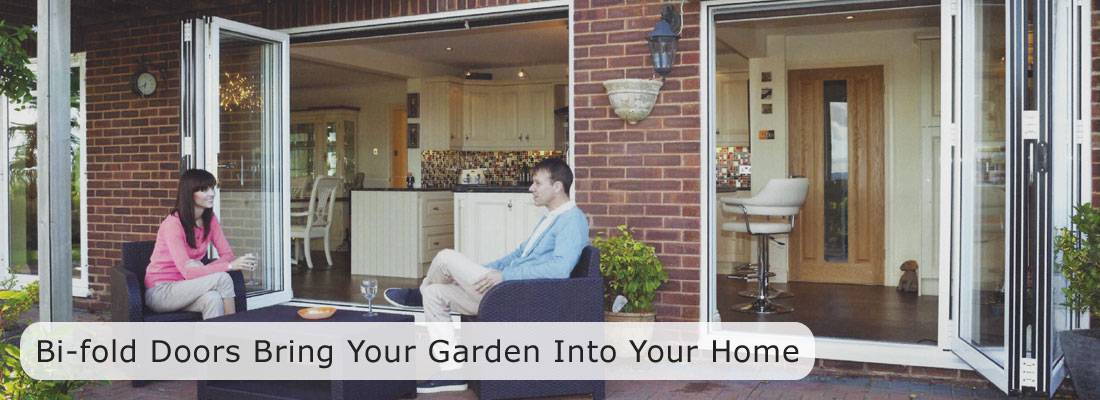
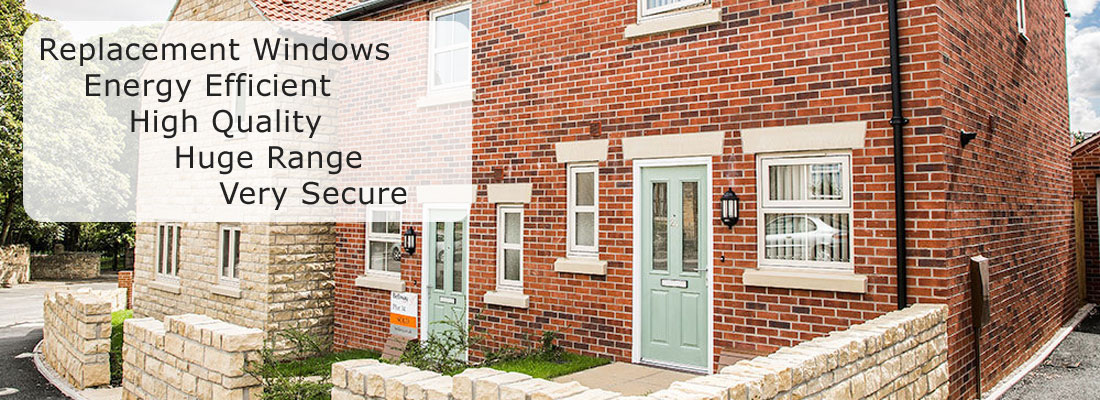
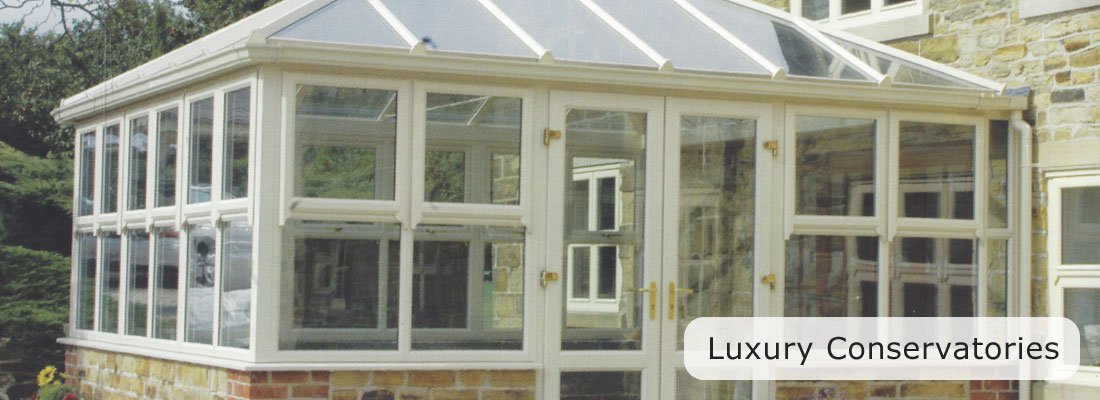
Safe and secure doors and windows
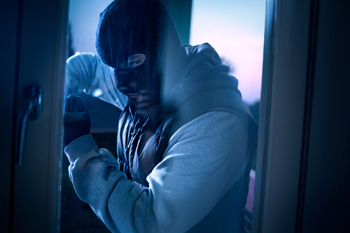
Glazing for domestic security on your doors and windows
There are several types of glass and glazing materials used in domestic doors and windows and some are more secure than others. The following information will provide descriptions of glazing materials and their uses and make some suggestions about what to ask for when you replace your doors and windows.
Clearly you should always replace broken panes of glass or broken double glazed sealed units and if these are in doors or accessible windows then consider using 6.4mm laminated glass. If you are going to replace your doors and accessible windows insist on ones that are certified to PAS 24 2012. For the windows specify the use of 6.4mm laminated glass for the sealed glazed units inner pane.
Remember, there is no such thing as a burglar proof house. All you can do is make it harder for them to get in and hopefully they will look for an easier target elsewhere.
Burglars hate noise and want an easy way in!
The number one thing to keep in mind is that burglars do not want to alert anyone to what they are doing, so always force a potential burglar to break the glass in order to gain access. This alone could be enough to make them move onto a softer target.
A glazed door or a window that is secure and of high quality will be difficult to kick or lever open. This will force the burglar to either give up or break glass to get in. Breaking glass is the very last thing a burglar will want to do for the following reasons:
Breaking glass make a lot of noise
Breaking ordinary plate glass makes a very distinctive sound that will be heard for some distance along the street in both directions. The majority of burglars are opportunists looking for an easy way in, they do not want to be caught, so someone hearing the sound of breaking glass and calling the police is a genuine concern to them. The old myth that a burglar in a stripey shirt with a mask and swag bag stalking the streets at night is just that, a myth. The majority of burglaries on dwellings happen during the day when the occupants are out at work. If the occupants are at work, there is a fair chance that neighbours will also be at work too, this is why secure glazing and frames are essential. Other high risk times for burglaries are weekends and holiday times when the property is likely to be unoccupied. Christmas is another time that extra care should be taken as this is the time of year when many new items are purchased, particularly for children. Small items such as cameras, phones, gaming consoles and the like are perfect targets for burglars as they are small, light and easy to sell on.
The noise made by breaking glass differs from one type of glass to another. Toughened glass, which is often used in replacement doors and windows for safety reasons, makes a dull noise, which will not travel as far as un toughened glass. Laminated glass, which is used in security doors and windows, makes very little noise when broken because of the plastic interlayer that is designed to hold the glass together. Again, the combination of tough glazing and well fitted quality frames is paramount from a security stand point.
Another way to avoid making noise is to simply remove the glass sheet or sealed glazed unit from the door or window altogether. It may sound strange but some windows and doors have external beading or strips that hold the glass in place. A flat scewdriver is all that is required to lift and remove these strips, leaving the glass or sealed glazing unit to fall out. Our windows and doors have these beads on the inside, eliminating the possibility of this happening.
Some older properties even had externally mounted higes that could simply be unscrewed from the wall, allowing an intruder to completely remove the entire frame and pane in one go, fortunately these types of windows are no longer on the market.
Time is not on the burglars side
Breaking any type of glazing or trying to breach a secure frame will take time and the longer it takes, the more chance that the burglar will give up and find an easier target.
The time it takes to break a pane of glass that is big enough to reach the catch of an unlocked window will depend on what type of glass is being broken. Sheet glass will break very easily and be noisy. Toughened safety glass, is very resistant to blows by blunt objects, but will break easily if struck by something sharp, such as a safety hammer meant to break car windows in emergencies. Ordinary 6.4mm laminated glass will break in the same way as float glass but the shards will be held together by the tough plastic interlayer, buying you valuable time. In some cases the thief has to push the entire sheet through the door or window, because it is held together, making unwanted noise and taking extra time.
If the burglar has to climb through the gap left by the smashed out glass, they run a very serious risk of personal injury. Therefore they need to spend time removing pieces of sharp glass, this also adds more time to the break in attempt.
Burglars want to avoid injury
Burglars want to avoid injury when smashing glass and will usually avoid breaking very large panes of glass because a large pane of glass may be more likely to injure them.
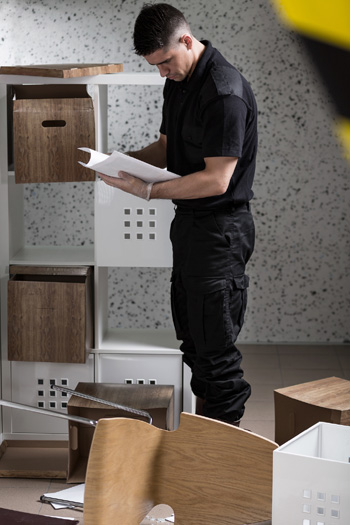
Forensic evidence left behind
Burglars will invariably leave something behind when they commit their crimes. In Forensic science, Locard's exchange principle holds that the perpetrator of a crime will bring something into the crime scene and leave with something from it, and that both can be used as forensic evidence.
In short, every contact leaves a trace and it has been said that: "Wherever he steps, whatever he touches, whatever he leaves, even unconsciously, will serve as a silent witness against him. Not only his fingerprints or his footprints, but his hair, the fibers from his clothes, the glass he breaks, the tool mark he leaves, the paint he scratches, the blood or semen he deposits or collects. All of these and more, bear mute witness against him. This is evidence that does not forget. It is not confused by the excitement of the moment. It is not absent because human witnesses are. It is factual evidence. Physical evidence cannot be wrong, it cannot perjure itself, it cannot be wholly absent. Only human failure to find it, study and understand it, can diminish its value."
Fragmentary or trace evidence is any type of material left at or taken from a crime scene, or the result of contact between two surfaces, such as shoes and the floor covering or soil, or fibers from where someone sat on an upholstered chair. Broken glass is no different
Smashing glass will always leave microscopic particles of glass that will get into the burglars clothes and hair and if they are caught by the police the forensic evidence will be able to match the glass fragments to the scene of the crime. Also, walking or climbing through broken glass will leave other valuable forensic evidence behind, such as clothing fibres, shoe prints, fingerprints and possibly even blood, the latter of which could lead to DNA identification.
The above emphasises to reasons why you should make sure that your doors and windows are very secure so that a burglar has no choice other than to try and break through the glazing.
FENSA regulations
All glass windows and doors conform to FENSA regulations. At ASPECT Windows and Doors we use Pilkington K Glass™ and Planitherm Glass™.
Energy efficiency
The cost of energy has shot up recently so any way in which energy can be saved is a good thing. New regulations have been introduced in the UK to control the requirements for energy efficiency. Energy ratings are now required when buying ans selling a house and the glass used in windows and doors plays an important role. Heat loss through glass is usually expressed as the 'U' value. Windows and doors which include glass with lower U values can help the energy saving capacity of a property.
Further Information
If you would like to know more or are interested in a quote we would be happy to help. Phone us on 01438 311 412, email us at enquiries@aspectwindowsanddoors.co.uk or fill in our enquiry form and we will be in touch as soon as possible.
The glass we use in all projects is the latest "A" Rated, energy efficient, low emissivity (Low-E) glass.
All of our windows, doors and conservatories are built with security, strength, durability as well as style.
At ASPECT Windows and Doors we offer a full repair and maintance service for doors, windows and conservatories.

ASPECT Windows and Doors are FENSA MCT registered
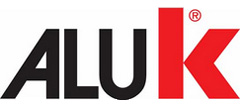
ALUK Bifold doors and aluminium window systems
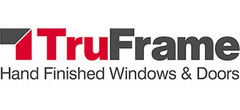
TruFrame Liniar Energy plus A+ rated lead free windows and doors

Aluminium sliding doors and folding doors from REYNAERS
ASPECT Windows and Doors
Herts: 01438 311 412 | Beds: 01462 290 188 | Mob: 07757 789 004 | Email us
Business & Technology Centre, Stevenage, Hertfordshire SG1 2DX
ASPECT Windows and Doors
t. 01438 311 412
ASPECT Windows and Doors is a trading name of Window Care Herts Ltd
Company No. 07340625 | VAT No. 102 8284 39 | Fensa Reg. No. 23874



